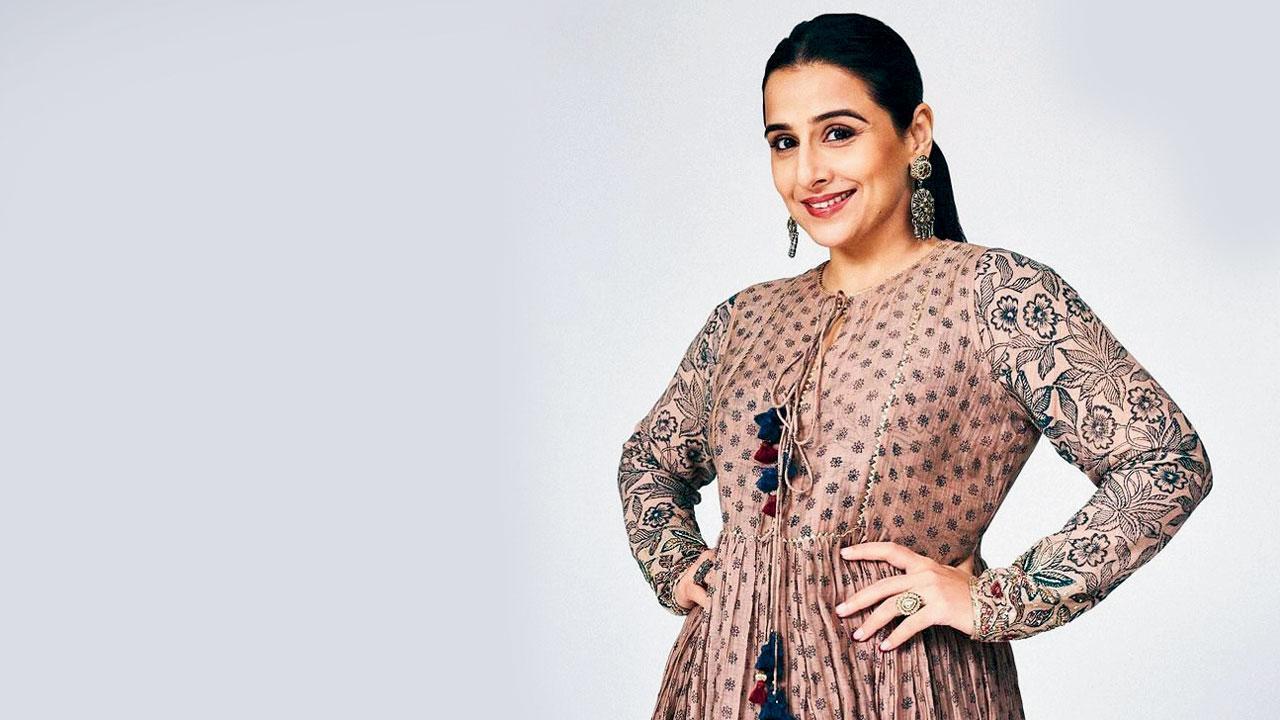Tired of dark thrillers and action films dominating the scene, Vidya says she was craving a sharply written rom-com when Do Aur Do Pyaar came her way

Vidya Balan. Pic/Instagram
Sometimes, you just want to sink into your seat with a popcorn tub, and watch a feel-good movie. Vidya Balan says Do Aur Do Pyaar is that movie. At a time when the industry is churning out action fare on the big screen and dark thrillers on OTT, rom-coms have been few and far between. “This is a genre I’ve missed,” starts the actor, who, with Pratik Gandhi, leads director Shirsha Guha Thakurta’s rom-com. “I was wondering why people aren’t making such films anymore. I am so bored with the content around me. There is too much action. When the film came to me, I loved the idea. I watched the original, The Lovers [2017]. Shirsha gave our film a new direction and Supratim Sengupta wrote the script, playing it differently [from the original]. This film makes me laugh and fills my heart. I wanted to go on a long drive, listening to music with Siddharth [Roy Kapur, husband]. Enough of pointless maar dhaad and diabolical people! I want to be in movies where I am enjoying, and so are my audiences.”
ADVERTISEMENT
Do Aur Do Pyaar sees Balan and Gandhi play a long-married couple, who are happy in their extra-marital relationships until they find themselves falling for each other again. Balan’s Kavya as a woman with agency struck a chord with her. “Kavya and her partner have an equal marriage. I related to the fact that she is stubborn and angry; she is not apologetic about her affair. Her predicament was funny, but I played it with a hint of curiosity. She is scared, confused and stuck.”
Often, female characters in Hindi cinema are one-toned. Rebellious parts are becoming predictable, too. Balan, who has built a 19-year career on fascinating characters, from The Dirty Picture (2011) to Kahaani (2012) and Sherni (2022), says we need to delve deeper into a woman’s complexities. “In films, there is either the bitch or the bechari, but I’ve never done films [with such black-and-white parts]. Women-led cinema is in a nascent stage here. Ishqiya [2010] was an aberration for its times. It has been 14 years, but the grammar is still being formed. It will get formed, broken, and reformed. It’s time to reimagine the women we are writing. I think more films are expanding the idea of a badass woman now. Even with women-led cinema, it’s important we take ourselves less seriously. Crew was fun and not necessarily nuanced, but we had a good time. That’s enough at times.”
 Subscribe today by clicking the link and stay updated with the latest news!" Click here!
Subscribe today by clicking the link and stay updated with the latest news!" Click here!







